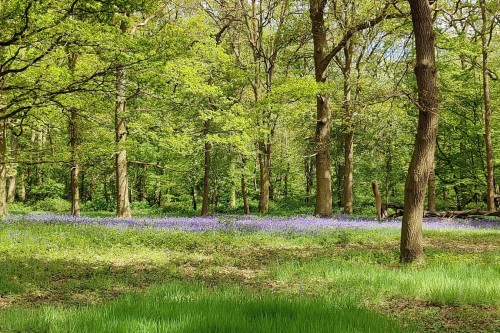
posted 14th February 2025
In his book ‘Grace and Grit’, (1) Ken Wilber writes compellingly about spirituality and healing in the life and death of his wife Treya. Her journals and Ken’s commentary take the reader on a powerful ride that is an exploration ultimately of surrender and Love. It was the first book I found on the library shelves when I was starting out training to be a counsellor. Little did I realise that Ken’s writing about the experience of being a carer would one day so closely resonate with my own experiences.
I have often turned to the pages where Ken writes about being a support person, which is what we are when we care for others. He doesn’t dress up this role in a sentimental wrapping, rather, he writes honestly about how challenging this can be. Carers are perceived to be good, strong and even sometimes courageous, but this idealised view comes at a heavy cost, because if you are a carer you may feel you have to live up to the expectations that the role places on you.
When I read Ken’s words about his feelings of resentment towards his beloved wife, after several years of dedicated and loving care of her, I felt a surge of relief. Ken reminds us that it is sometimes difficult to remain loving whilst being a carer. We may become an emotional sponge, “breathing in their pain, fear and hurt”. Ken says that learning to do this took him a year, for me it was many years. Being a sponge feels pretty helpless and useless because you can’t get on and fix things; this is beyond your power.
Another important message came from my therapist who at that time rarely made any self disclosure, but this particular day I recall him talking about a family member who had taken the decision to sever herself from her troubled child. In that moment, by sharing this personal detail, he gave me permission to contemplate the unthinkable, walking away from my child’s suffering and my carer role. The relief I felt in acknowledging that this was an option was immense and ironically it fuelled my capacity to continue.
I came to the practice of mindfulness not as someone interested in an esoteric path; I came to it because it was the only thing that offered me any salvation as I battled with the stormy seas of being a carer. I’d trained some years before as a counsellor and done my best to help my clients. By now it was my need for psychological survival that set me off on a journey to find some kind of help. It seemed to me that this help didn’t exist in the kind words of family and friends, or in the patient support of my therapist and supervisors, it was something I had to uncover within myself and back then I didn’t want to look so deep.
I was caught in a crisis, my beloved mother was slipping into the end stages of dementia, daily her capacity declined and I, along with my father cared for her. There was an acceptance and simplicity in this gradual end of her life. But as all carers know, there are testing times when one feels like your sense of self is being sucked under, in this case in a sea of responsibility, grief and on occasions, emotions that feel less honourable and acceptable.
It wasn’t so much this situation which drove me to mindfulness, it was the suffering of my twenty something son. He was bound by the ravages of the tenacious anxiety disorder, body dysmorphia. When you have a beloved child caught in such an all consuming psychological torment, it spills out into your life, you drown in it. Michelle Obama once said, “I am only as happy as my least happy child”, that resonated with me.
Often, the only times I was free of the trouble I carried as a result of these two caring roles was when I sat with my own clients, committed for an hour, solely to their experience, rather than to my own. Generally I felt lost, alone and afraid for myself as well as for my son. No one understood and no one knew what to do. When my son’s death came near I felt both petrified and relieved, frozen in disbelief and yet submitting to the reality that this was happening in the here and now.
My role as a carer gradually changed, my elderly parents declined and died, both with much equanimity and my son began to recover and thrive. In the process I began to learn not to be reactive, not only to save myself but also my son. Mindfulness became a foundation of my survival in the role of carer.
But mindfulness is now so much a part of our vocabulary and of the zeitgeist of wellbeing. We consume all manner of things that we hope will support us in surviving in difficult times. The doing of mindfulness seems lost in a lot of ideas and techniques, but how to do it? For sure it is much more about transformation than simply information.
In day to day life, difficulties come and go, some are manageable, a shunt in the car is inconvenient, but quickly resolved, lost keys are recovered, a dispute is forgotten. It’s when life’s difficulties take a different and more serious turn, as they so often do, that we are forced to re-evaluate our lives and our ways of coping. So, it’s usually only at the point of some crisis or overwhelm that we look to ways of coping and mindfulness is nowadays centre front.
The great news is that once you have incorporated mindfulness as a practice into your life it is there for you not only in times of crisis, but also when for example, you mislay your phone, which may feel like a crisis but is in fact an inconvenience. All too often we react to minor inconvenience as if it is the end of civilisation as we know it. Mindfulness helps us to gain clarity on matters and to respond appropriately rather than react mindlessly. As a result of suffering we may learn what really matters and how to cope.
Mindfulness is accepting the mind’s cascading thoughts, stepping aside from our inner turmoil like an interested observer and watching the flow of emotions and experiences without judgement. It’s about noticing the rage or the fear, the despair and the joy. It’s about being kind to ourselves on a wholesale level, internalising a much needed compassionate perspective. From this point of view the storms and doldrums in our emotional lives become manageable and the techniques suggested in mindfulness trainings become tools that support our whole being.
In those dark days of caring I was hungry for something concrete that would support me, I learnt that there was no such help. However, we may be able to extend the far from concrete practices of mindfulness into every aspect of our lives. So, as a carer, mindfulness becomes part of a lived experience, whether that be the repetitive acts of care for a dying relative, or the challenge of staying grounded and loving whilst our child is, for a time, or perhaps for a lifetime, lost in psychological turmoil.
I learnt that stilling my own emotions and witnessing the suffering of others from that quiet place is restorative for them but also for myself.
The Buddhist teacher Thich Naht Hanh who I was so honoured to learn from, says,
“Mindfulness protects us, our families and our society. When we are mindful, we can see that by refraining from doing one thing, we can prevent another thing from happening. We arrive at our own unique insight. It is not something imposed on us by an outside authority. Practicing the mindfulness trainings, therefore, helps us be more calm and concentrated, and brings more insight and enlightenment”.
When I wrote this as part of a chapter in a book compiled by my dear lecturer and mentor, Steve, we were in the unfolding days of the coronavirus pandemic. Five years ago our world was shutting down and we were to witness such radical changes, the horrors of the pandemic and the wonders of seeing people pull together and the miracle to witness the environment in magnificent stillness. April 2020, a bluebell wood, a carpet of purple, birdsong and no human sound, something perhaps we will never experience again. Rather than considering myself as a carer, I faced the prospect of possibly needing care myself, far sooner than I had envisioned. I wondered how it would be to be cared for, whether mindfulness would support equanimity.
Seeing the fearless determination and compassion of health workers and the community of people isolated in their homes, singing to one another from their balconies gave me hope that something good may come from a crisis; that love and compassion for ourselves and others could blossom as we individually and collectively experienced the greatest challenge in a generation.
Of particular support to me is a holistic perspective on mindful consumption, this is exemplified in one of the non-sectarian, five Mindfulness Trainings which are published by Plum Village:
Nourishment and Healing
Aware of the suffering caused by unmindful consumption, I am committed to cultivating good health, both physical and mental, for myself, my family, and my society by practicing mindful eating, drinking, and consuming. I will practice looking deeply into how I consume the Four Kinds of Nutriments, namely edible foods, sense impressions, volition, and consciousness. I am determined not to gamble, or to use alcohol, drugs, or any other products which contain toxins, such as certain websites, electronic games, TV programs, films, magazines, books, and conversations. I will practice coming back to the present moment to be in touch with the refreshing, healing and nourishing elements in me and around me, not letting regrets and sorrow drag me back into the past nor letting anxieties, fear, or craving pull me out of the present moment. I am determined not to try to cover up loneliness, anxiety, or other suffering by losing myself in consumption. I will contemplate interbeing and consume in a way that preserves peace, joy, and well-being in my body and consciousness, and in the collective body and consciousness of my family, my society and the Earth.
Finally, I offer the teachings of Tara Brach whose weekly podcasts have steadied me during the most difficult times. Tara is a psychotherapist and founder of the Insight Meditation Community of Washington, DC (IMCW). Her wisdom, insight and compassion, expressed through her soft voice and through humour, is supportive but also as soothing as a lullaby.
If you are reading this as a carer, especially as a carer of someone you love who is caught in body dysmorphia, I send you my love and I hope that somehow you may be lifted in hope that things can be better.
Resources
1. Nhat Hanh, T. (2009) Happiness: Essential Mindfulness Practices, Shambala Classics, Boston.
2. Wilber, K. (1991) Grace and Grit, Spirituality and Healing in the Life and Death of Treya Killam Wilber, Gill &N Macmillan, Dublin.
3. The five mindfulness-trainings can be found here: https://plumvillage.org/mindfulness practice/the-5-mindfulness-trainings/
4. https://www.tarabrach.com/



